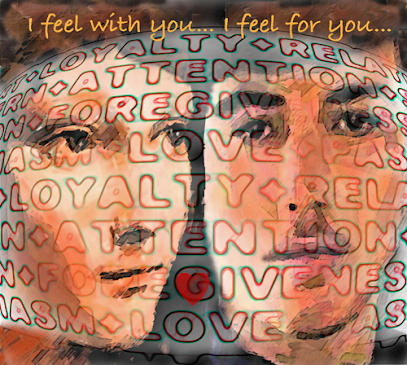Alasdair MacIntyre & the Pursuit of a Good Life
To live well, as articulated by Alasdair MacIntyre (1929-2025) and Miskawayh al-Razi (c.932-1030), is not a matter reducible to the Cartesian metrics of satisfaction or material acquisition, but a rigorous and constant cultivation of virtue within the matrix of a sustaining community. Both thinkers, though separated by epoch and civilization, evoke the inexorable relevance of Aristotelian eudaimonia as an antidote to the atomism and emotivism that pervade modern ethical discourse. MacIntyre, whose corpus critiques the philosophical disintegration witnessed in post-Enlightenment moral theory, insists that moral reasoning finds coherence only when situated within living traditions—those evolving constellations of narratives, practices, and communal inheritance. Virtue, in his dialectic, is not a commodifiable trait or subjective preference, but the iterative outcome of participation in shared practices that embed individuals in the moral texture of community and tradition. He further contends that autonomy is a chimera, as true moral development is predicated upon interdependence and mutual accountability. Human flourishing materializes only when individuals cultivate virtues that facilitate reciprocal recognition and social trust—demolishing the myth of self-sufficiency and foregrounding the necessity of communal embeddedness.
Miskawayh, drawing from the wellspring of Aristotelian ethics yet refracted through the epistemic prism of Islamic philosophy, likewise designates moral excellence as inherently social, precluding its attainment in solitary isolation. In Tahdhib al-Akhlaq, he posits that the perfection of the human soul is a function of reason, habit, and continuous civic engagement—a telos actualized through the concerted pursuit of both intellectual and spiritual refinement. Moral habituation, discipline, and perseverance are not privatized endeavors but require the sustaining architecture of societal cooperation and mutual striving for the common good. Further, Miskawayh rejects a strictly corporeal or intellectualist reading of eudaimonia, arguing that felicity comprises both temporal well-being and the noetic fulfillment attainable only by the balance of worldly requirement and the ascent toward eternal wisdom.
Both thinkers emphasize that a meaningful life is defined by asymptotic striving: an endless ascent toward virtue that, by its very nature, cannot be consummated. Unlike Sisyphus, whose labor is aimless and repetitive, the virtuous agent undertakes a purposeful and dynamic progression—an existential pilgrimage shaped by the exigencies of history, tradition, and community, whereby moral horizons are interminably reimagined and recontextualized. Thus, MacIntyre and Miskawayh, through distinct yet convergent appropriations of Aristotelianism, invite us to reconceive human flourishing as a perennial and communal labor of ethical self-transcendence, perpetually remade through participation in the moral life of the polis.
WORDS TO BE NOTED-
-
Eudaimonia
-
Meaning: A Greek term from Aristotle, commonly translated as “flourishing” or “the good life”; it refers to the highest human good, achieved through virtuous activity over a lifetime.
-
-
Atomism
-
Meaning: In philosophy, a theory that emphasizes the existence of individuals as separate, self-sufficient entities; in ethics, it denotes a perspective that downplays or ignores the importance of social context or community.
-
-
Emotivism
-
Meaning: An ethical theory contending that moral statements simply express emotional attitudes rather than objective truths, making moral reasoning subjective and based on personal feeling.
-
-
Commodifiable
-
Meaning: Capable of being turned into a commodity (an item for sale or trade); in ethics, suggests reducing virtues or qualities to marketable or transactional goods.
-
-
Dialectic
-
Meaning: A method of argument involving the exchange of logical reasoning and contrasting ideas, often aimed at reaching truth through dialogue or debate.
-
-
Telos
-
Meaning: A Greek word meaning “end,” “goal,” or “purpose”; in Aristotelian ethics, telos refers to the ultimate aim or end for which something naturally strives.
-
-
Epistemic
-
Meaning: Related to knowledge or the study of knowledge (epistemology); in context, suggests a way of understanding rooted in how we know and understand the world.
-
-
Noetic
-
Meaning: Relating to intellectual or spiritual activity, especially the mind’s capacity for direct knowledge or insight.
-
-
Habituation
-
Meaning: The process of forming habits through repeated actions; in ethics, the development of virtuous character by consistently practicing virtuous actions.
-
-
Asymptotic
-
Meaning: Approaching towards a limit or goal without ever fully reaching it; metaphorically, refers to a process of perpetual striving that never achieves final completion.
-
-
Constellations (as in traditions)
-
Meaning: Used metaphorically to denote interconnected networks or groupings—here, traditions seen as living, evolving systems of interrelated practices and beliefs.
-
-
Felicity
-
Meaning: Profound happiness or bliss; in philosophy, sometimes used to denote a state of well-being or good fortune.
-
-
Sisyphus (metaphorically)
-
Meaning: Refers to the Greek myth of Sisyphus, condemned to unending, futile labor; used metaphorically to describe endless, repetitive, and seemingly pointless efforts.
-
-
Embeddedness
-
Meaning: The state of being deeply integrated or situated within a context, especially within social, cultural, or communal frameworks.
-
-
Pilgrimage
-
Meaning: A journey, often with a spiritual or moral goal; in this context, a metaphor for an ongoing quest toward self-improvement or moral perfection.
-
Paragraph Summary
MacIntyre and Miskawayh, each deeply rooted in the Aristotelian tradition, converge on a robust conception of the good life—one that transcends mere personal gratification or material gain. For these thinkers, living well is a continuous and communal striving for virtue, realized through participation in social practices and tradition-bound communities that anchor ethical reasoning and moral development. Both reject the solipsism and fragmentation characteristic of modern moral thought, arguing instead that human flourishing, or eudaimonia, is integrally social, requiring reciprocal dependence, civic engagement, and the perpetual habituation of virtue. Unlike the aimlessness represented by the myth of Sisyphus, the quest for virtue and the good life is a dynamic, purposeful journey—never fully completed but always advancing, shaped by the evolving fabric of communal life and the inexorable demands of tradition. This dialogical vision underscores the enduring legacy of Aristotelian ethics across temporal and cultural divides.
SOURCE- PHILOSOPHY NOW
WORDS COUNT- 500
F.K SCORE- 16




Comments
Post a Comment